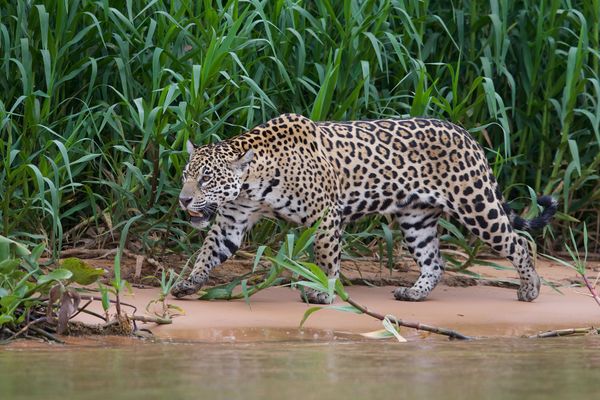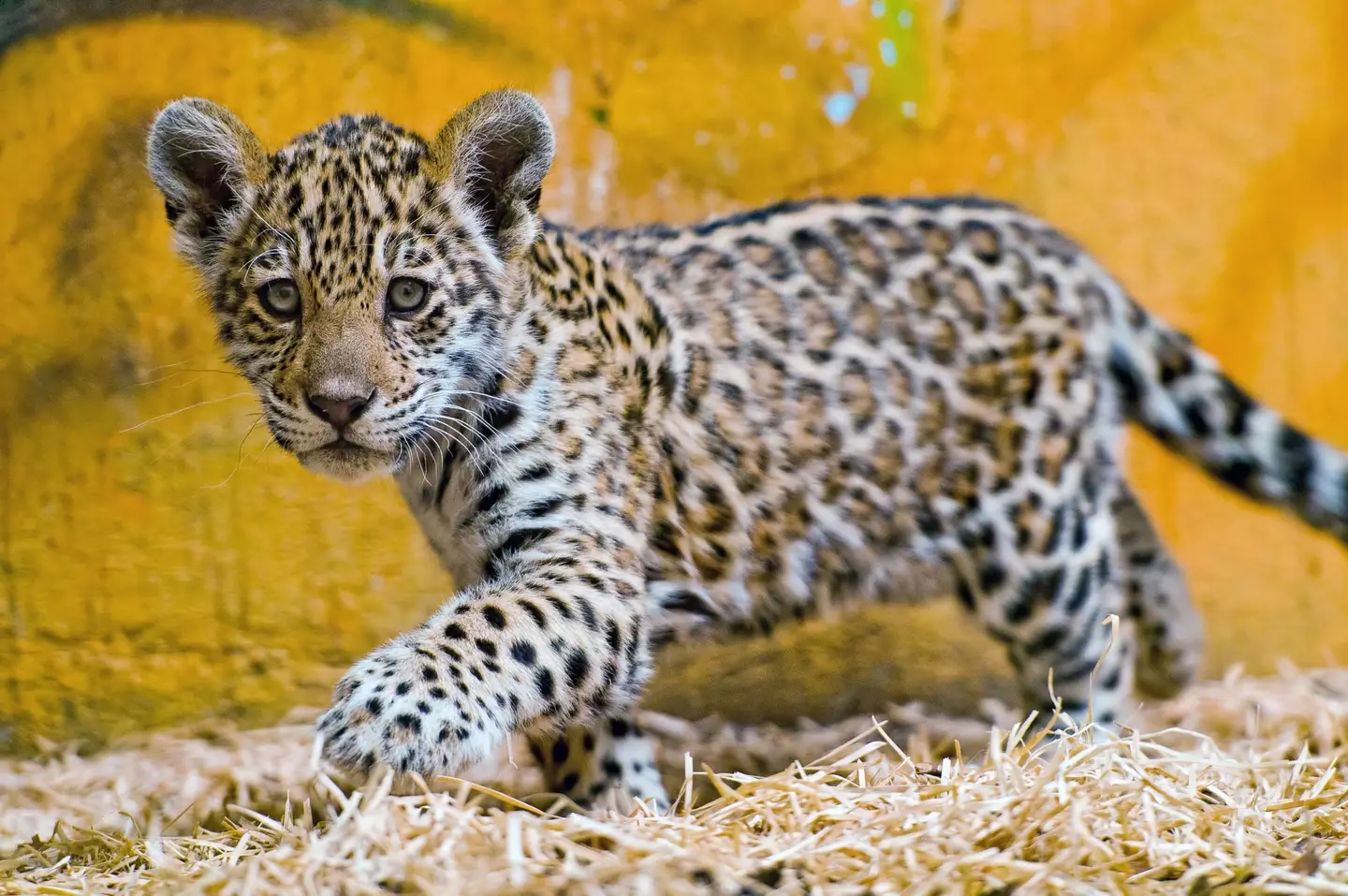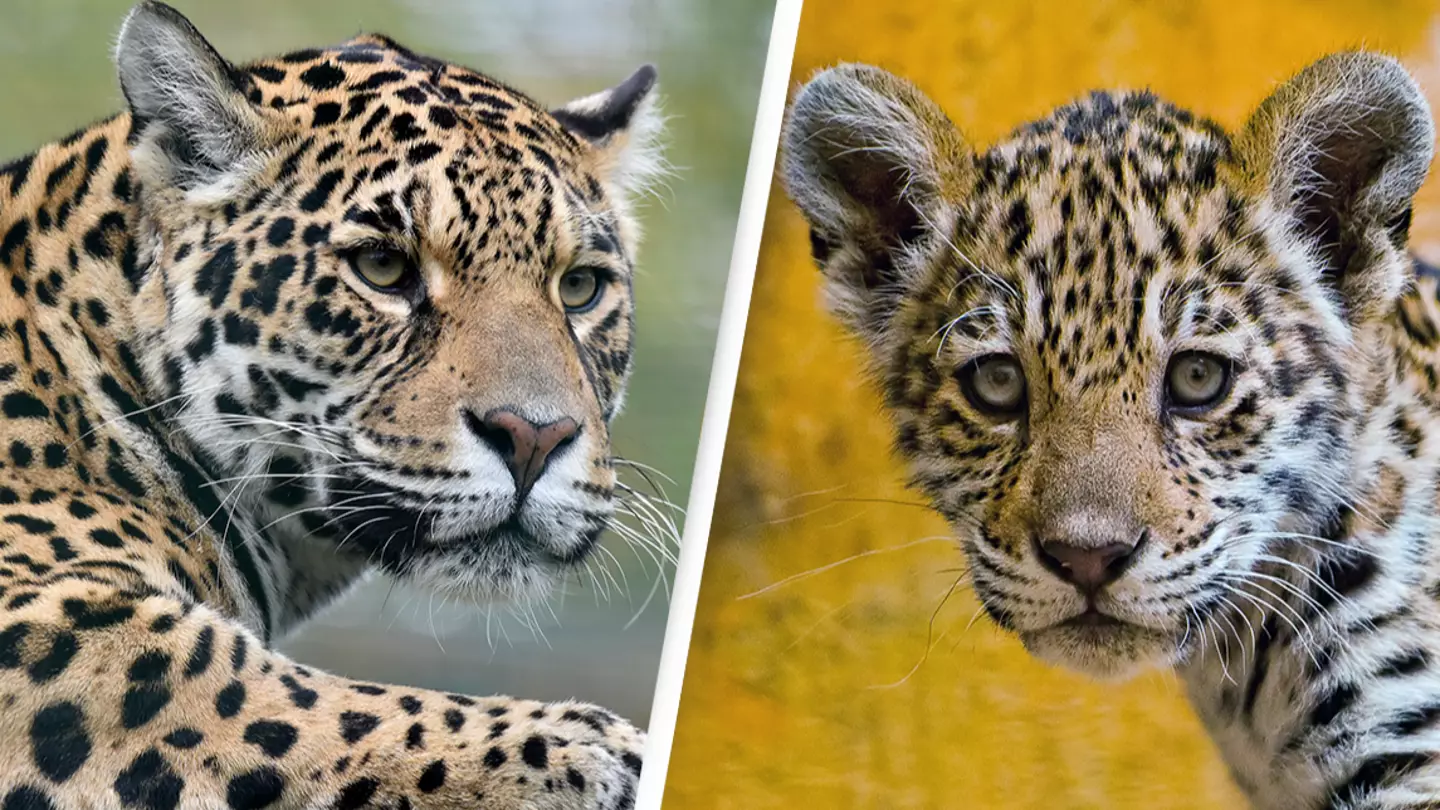In a bittersweet twist of fate, a jaguar mother ate her own cub, marking a tragic end to the first successful jaguar birth via artificial insemination.
The environmental team at Mata Ciliar in Brazil celebrated this event as a monumental step forward in the conservation efforts for these majestic creatures, which are currently listed as an endangered species facing a stark decline in the wild.
The demise of the newborn jaguar, however, did not come as a surprise to the experts, who noted that such behavior is commonly observed both in captivity and in the wild, particularly among carnivores.
The cub made its entrance into the world in February 2019, just 104 days after Bianca, a five-year-old jaguar, underwent artificial insemination procedures.
Speaking to FocusOn News, Samuel Nunes, a spokesperson for Mata Ciliar, explained, “Unfortunately after two days, the cub died.

“We don’t know why and cannot say if it was killed by the mother because it was not seen on the monitors on the second day.
“Bianca was a first-time mother and this may have influenced the outcome of the event.
“The veterinary team could not conduct a necropsy because the baby had already been eaten.”
The incredible journey of this pioneering birth was captured in a video that highlighted the various stages involved, from the sedation of a healthy male jaguar and the extraction of fresh semen to the laboratory analysis and eventual insemination of the female.
The initiative, which kicked off in 2017 in collaboration with top-tier scientists from the Center for Conservation and Research of Endangered Wildlife, has been a beacon of hope for the future of jaguar preservation.

Bianca was carefully selected along with four other female jaguars based on health, age, and reproductive potential.
Nunes further detailed the preparatory phase, “The project required intensive preparation. The selected females underwent a conditioning process to minimize stress, which reduced the need for anesthesia during critical procedures like ultrasounds and the administration of hormones and medications.”
Dr. Bill Swanson from CREW shared his insights with the NY Post, stating, “The jaguar is the last of the seven species of large-sized felines to undergo artificial insemination.
“The birth of this cub is a historical milestone. It reignites the potential for using assisted reproduction as a vital tool in managing genetic diversity and aiding in the conservation of these endangered cats.”

